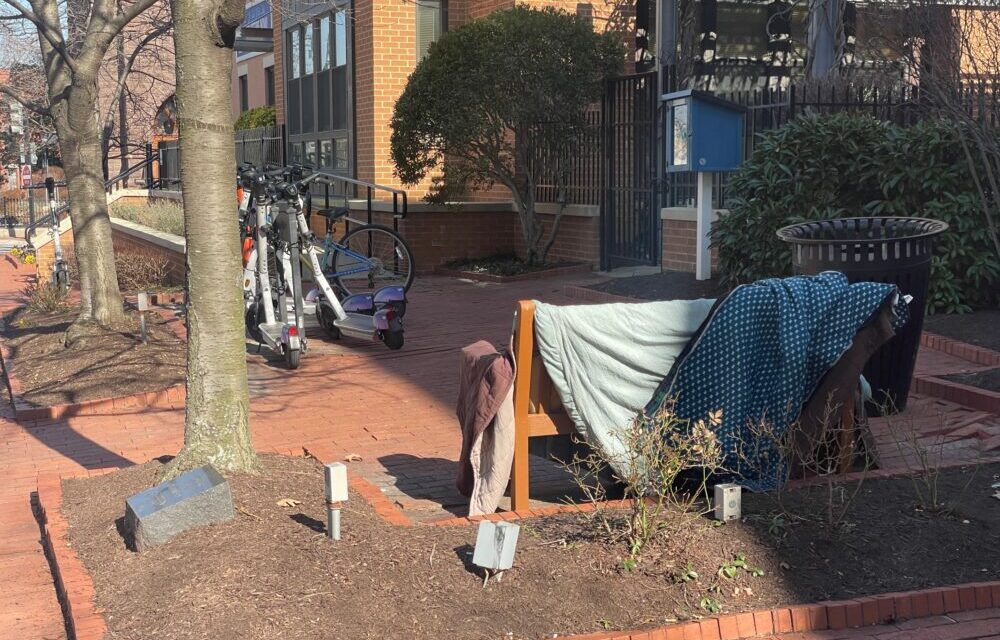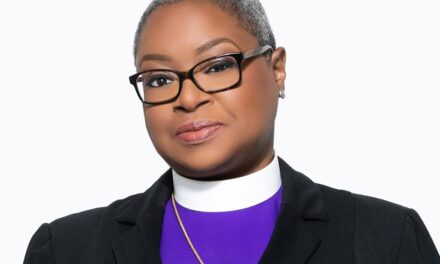By Lisa Woelf
Capital News Service
More homeless people than ever sleep on the streets.
The U.S. Supreme Court will decide if local governments can punish homeless people who sleep or camp outside when no shelter beds are available, or if such laws violate the Eighth Amendment’s protection against cruel and unusual punishment.
The issue came to the court from the small Oregon city of Grants Pass, which has more homeless people than shelter beds. City ordinances prohibit those people from sleeping on the street or in parks if they use a blanket or cardboard box as protection from the weather. Three homeless people filed a complaint against the city, and a district court ruled that the city can’t enforce that law.
The Supreme Court is expected to hear oral arguments in late April.
Elected officials including California Gov. Gavin Newsom urged the Supreme Court to take the case and side with Grants Pass.
In a statement, Newsom said that “the courts have tied the hands of state and local governments that seek to use common sense approaches to clean our streets and provide help for unhoused Californians living in inhumane conditions.”
In an amicus brief to the Supreme Court, Newsom argued that local governments “need the flexibility to…address immediate threats to health and safety in public places – both to individuals living in unsafe encampments and other members of the public impacted by them.”
Ed Johnson, lead counsel for the homeless respondents in the Supreme Court case, said in a written statement: “This case is not about a city’s ability to regulate or prohibit encampments. That has always been permissible.” Instead, the issue is whether cities can punish homeless residents “for simply existing without access to shelter,” he said.
The Supreme Court decided to take on the case amid what Jesse Rabinowitz at the advocacy organization National Homelessness Law Center (NHLC) calls a “nationwide movement…to criminalize people experiencing homelessness.”
In an analysis of 187 city laws from 2006 to 2019, NHLC found a vast increase in laws targeting visible homelessness, such as panhandling and sleeping in public.
“It’s sad that cities are throwing up their hands and saying the only way we can end homelessness is by arresting people,” Rabinowitz said.
In recent years, the NHLC recorded an increase in state-level efforts to criminalize homelessness. As of Jan. 24, 11 states had seen bills criminalizing homelessness introduced or passed, according to the organization.
While criminalization efforts increase, the number of homeless people sleeping on the streets reached an all-time high in 2023. In a single night, 256,104 people were counted as unhoused across the United States, according to the federal Department of Housing and Urban Development.
The data is collected nationwide every year on a specific night and goes back to 2007, the year with the second-highest number of homeless people sleeping outside.
An analysis of the nationwide data shows that there was a nationwide downward trend in unsheltered homelessness until 2015, after which the number steadily increased for five years.
The 2020 count took place before the coronavirus pandemic swept the country. The effects of the virus and measures against its spread impacted the 2021 survey that shows a sharp drop in unsheltered homelessness, often attributed to federal moratoriums on evictions, among other causes.
Since then, the number of unsheltered homeless people has increased again, peaking in 2023.
In contrast to the national trend, Maryland has significantly reduced homelessness over the last 14 years, according to HUD data.
The numbers for 2021 and 2022 “were suppressed by the pandemic,” Danielle Meister, assistant secretary for homeless solutions at the Maryland Department of Housing and Community Development, said in a statement.
Compared to 2020, 7.8 percent fewer people were homeless in 2023. The number of homeless people sleeping outside plummeted by 23 percent.
According to Jake Day, Maryland’s secretary of housing and community development, the state is “within striking distance” of ending homelessness for veterans, unaccompanied youth and domestic violence survivors.
To reach that goal, the department needs to focus on solutions that work: “reducing housing instability, lowering barriers to services, and investing in permanent supportive housing,” Day said in a statement.
Rabinowitz said that he hopes the Supreme Court will uphold the lower court’s precedent and side with homeless people. “Criminalizing people experiencing homelessness keeps them homeless longer,” he said. “When folks get the housing they need, they thrive.”
This article was originally published by the Capital News Service
The post Supreme Court to decide if cities can punish homelessness appeared first on AFRO American Newspapers.












